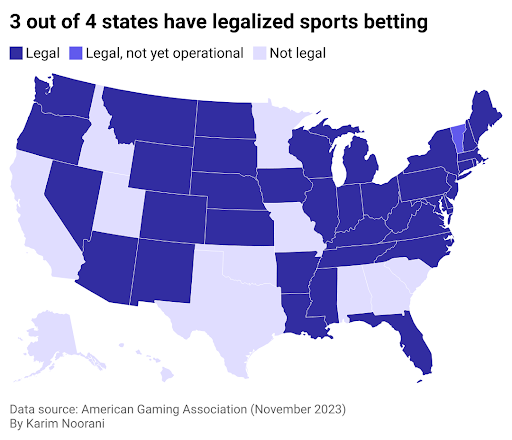
As March Madness approached, an informal poll conducted at Bellarmine Prep has revealed a striking trend: over 50% of those planning to fill out a bracket also intend to partake in some form of sports betting. This statistic mirrors a national trend, as an estimated 68 million Americans are expected to wager on March Madness in 2024.
With the legalization of sports betting in 38 states and the District of Columbia, the industry has experienced exponential growth. In 2023, it was forecasted that a staggering $15.5 billion would be wagered on the tournament. However, NBC News reports that approximately 40% of this money is projected to be bet illegally.
The loosening of restrictions on sports betting, catalyzed by the landmark Murphy v. NCAA decision in 2018, has opened the floodgates for a booming industry. This decision struck down the Professional and Amateur Sports Protection Act of 1992, prompting many states to pass laws legalizing sports betting. In 2018 alone, the industry generated over $2.6 billion in tax revenue.
Yet, amidst the excitement of March Madness betting, concerns about problem gambling and addiction loom large. CBS News warns that despite the allure of potential winnings, “it almost goes without saying that everyone placing a bet this year is bound to lose money.” Americans alone have collectively lost a staggering $245 billion to sports gambling since the rules were relaxed in 2018.
As the industry continues to flourish, calls for responsible gaming initiatives and increased support for those affected by gambling-related harm grow louder. As millions across the nation gear up to participate in the annual March Madness frenzy, the debate over the societal impact of sports betting continues.


